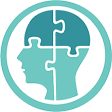Obsessive-Compulsive Disorder, commonly known as OCD, is more than just a penchant for tidiness or meticulousness. It’s a complex mental health condition that can significantly impact a person’s life. In this blog, we will explore how to identify OCD and why intensive OCD therapy, under the expert guidance of Austin Bridges, is a highly effective treatment option for those grappling with this challenging disorder.
Identifying OCD: Beyond the Stereotypes
OCD is often misunderstood, with its portrayal in media perpetuating stereotypes of extreme cleanliness or obsessive organization. However, it’s essential to recognize that Obsessive Compulsive Disorder is not merely a quirk; it’s a serious mental health condition characterized by two primary components:
- Obsessions: These are persistent, intrusive, and distressing thoughts, urges, or images that repeatedly invade a person’s mind. Common obsessions include fears of contamination, doubts, aggressive thoughts, or a need for symmetry and order.
- Compulsions: Compulsions are repetitive behaviors or mental acts that an individual feels driven to perform in response to their obsessions. These behaviors are aimed at reducing the distress caused by the obsessions but often provide only temporary relief.
Obsessive Compulsive Disorder can manifest in countless ways, and its symptoms can vary widely among individuals. Some common obsessions and compulsions include:
- Checking: Repeatedly checking locks, appliances, or switches due to an obsession with safety.
- Trying to figure something out obsessively: Constantly going in circles thinking about a problem that never arrives at a solution.
- Cleaning and Washing: Excessive hand washing or cleaning items, driven by a fear of contamination.
- Counting and Repeating: Counting objects or repeating words or phrases as a way to ward off obsessive thoughts.
- Hoarding: Accumulating items compulsively, often to the point of living in clutter.
- Arranging and Ordering: Needing items to be arranged in specific ways to alleviate anxiety.
Why Intensive OCD Therapy?
Traditional therapy methods can be highly effective in treating Obsessive Compulsive Disorder, but for some individuals, intensive OCD therapy offers distinct advantages. Here’s why it can be an excellent choice:
- Targeted and Focused: Intensive therapy sessions are concentrated, providing a highly focused environment for tackling Obsessive Compulsive Disorder head-on. This intensity can accelerate progress.
- In-Depth Exploration: With extended sessions, therapists like Austin Bridges can delve deeper into the root causes of your obsessions and compulsions, leading to profound insights and better coping strategies.
- Evidence-Based Techniques: Intensive therapy incorporates evidence-based techniques such as Exposure and Response Prevention (ERP) and Cognitive-Behavioral Therapy (CBT), which have a strong track record in treating OCD effectively.
- Customized Treatment Plans: Austin Bridges tailors treatment plans to your unique needs, ensuring that you receive the most relevant and beneficial interventions.
- Comprehensive Support: Intensive therapy embraces a holistic approach, addressing not only the symptoms of OCD but also the emotional, cognitive, and relational aspects of the condition.
The Road to Recovery with Austin Bridges
If you suspect you or someone you know is dealing with Obsessive Compulsive Disorder, it’s essential to seek help promptly. Austin Bridges, an expert in Obsessive Compulsive Disorder therapy, can guide you on the path to recovery. Here’s a glimpse of what you can expect on this journey:
1. Thorough Assessment: Austin will conduct a thorough evaluation to understand the nature and severity of your OCD symptoms, ensuring a precise diagnosis.
- Personalized Treatment Plan:** Together, you and Austin will create a personalized treatment plan that outlines your goals and the strategies that will be employed to manage your OCD effectively.
- Exposure and Response Prevention (ERP):** ERP, a cornerstone of Obsessive Compulsive Disorder therapy, will be integrated into your treatment plan. It involves gradual exposure to your obsessions without engaging in compulsive behaviors.
4. Cognitive Restructuring: Austin will help you challenge and reframe the irrational beliefs that underlie your obsessions.
5. Coping Strategies: You will learn effective coping strategies to manage anxiety and obsessive thoughts, reducing the compulsion to engage in rituals.
6. Support and Guidance: Austin will provide unwavering support and guidance throughout your journey, ensuring you feel heard, understood, and empowered to take control of your life.
Identifying OCD is the first step towards finding the help you or your loved one needs. With Austin Bridges as your guide, intensive OCD therapy becomes a powerful tool in the battle against this complex condition. Don’t let OCD control your life; instead, embrace the intensive therapy approach and embark on a journey towards clarity, resilience, and lasting relief. Reach out to Austin Bridges today and take the first step on your path to recovery.








